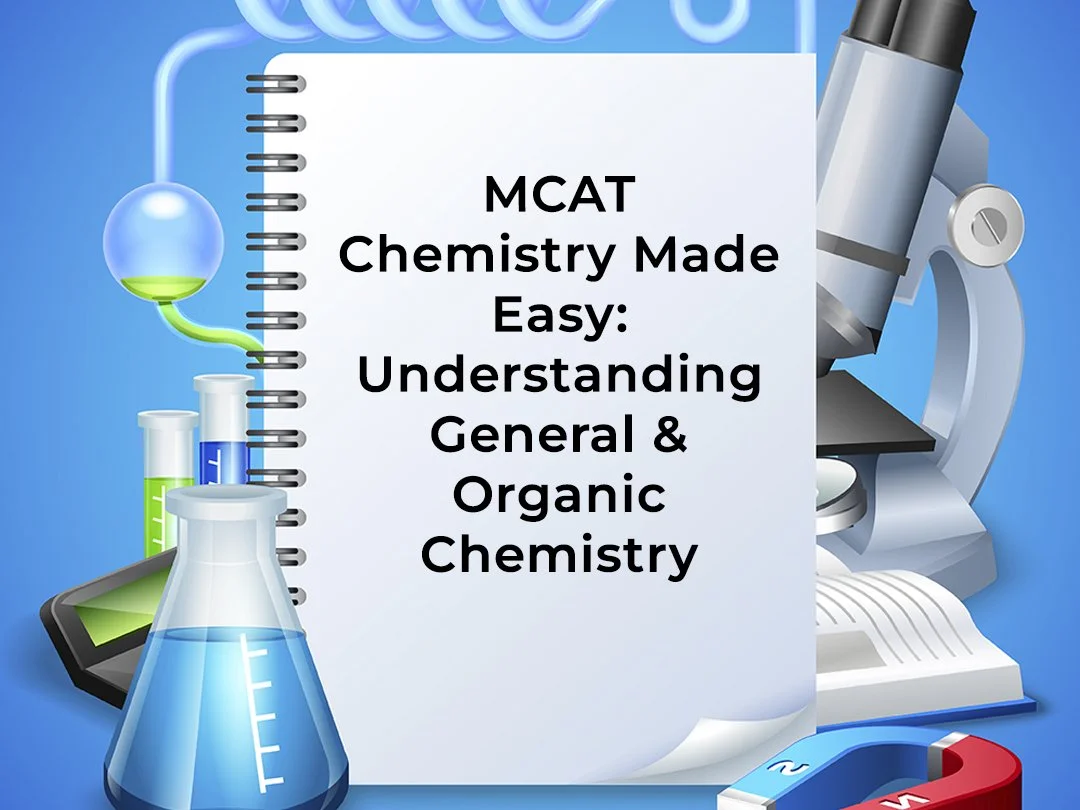MCAT Chemistry Made Easy: Understanding General & Organic Chemistry
MCAT Chemistry can be challenging, but with the right strategies, you can master both general and organic chemistry efficiently. By focusing on high-yield concepts and applying smart study techniques, you’ll improve retention and problem-solving speed.
1. High-Yield General Chemistry Topics
General chemistry lays the foundation for understanding chemical reactions and equations. Focus on these key topics:
Atomic Structure & Periodic Trends – Electron configuration, ionization energy, electronegativity
Bonding & Molecular Structure – Ionic, covalent, and intermolecular forces
Stoichiometry & Chemical Reactions – Balancing equations, limiting reactants
Thermodynamics & Kinetics – Gibbs free energy, reaction rates, catalysts
Acids, Bases & Buffers – pH, pKa, titration curves
Electrochemistry – Redox reactions, galvanic and electrolytic cells
2. High-Yield Organic Chemistry Topics
Organic chemistry requires pattern recognition and reaction mechanisms. Prioritize these high-yield areas:
Structure & Bonding – Hybridization, resonance, functional groups
Nucleophiles & Electrophiles – SN1, SN2, E1, and E2 reactions
Reaction Mechanisms – Addition, elimination, oxidation-reduction
Spectroscopy & Lab Techniques – NMR, IR, mass spectrometry, chromatography
Biochemically Relevant Molecules – Amino acids, carbohydrates, lipids
3. Best Study Strategies for MCAT Chemistry
Use KOTC Visual Resources – King of the Curve’s science images simplify complex concepts.
Master the Math – Practice stoichiometry, logarithms, and rate laws.
Apply Active Recall – Use Anki decks to drill reaction mechanisms and equations.
Solve Practice Questions – Use KOTC’s adaptive Q-bank for MCAT-style practice.
Break Down Reactions – Understand WHY reactions happen, not just memorizing mechanisms.
4. Common Mistakes to Avoid
Memorizing Instead of Understanding – Organic chemistry is logic-based; focus on mechanisms.
Skipping Conceptual Questions – The MCAT tests application, not rote memorization.
Ignoring Experimental Passages – Learn to interpret graphs and experimental data.
Final Thoughts
MCAT Chemistry doesn’t have to be overwhelming. By focusing on high-yield topics, applying strategic study techniques, and leveraging KOTC’s resources, you can simplify complex concepts and maximize your score.
Frequently Asked Questions (FAQs)
-
Aim for 4-6 focused hours, ensuring you incorporate breaks to avoid burnout.
-
Practice mindfulness techniques, take practice exams under realistic conditions, and maintain a balanced lifestyle.
-
Set short-term goals, seek support from mentors, and reward yourself for small achievements.
-
Regular exercise improves focus, reduces stress, and enhances overall mental clarity.
-
KOTC offers personalized learning tools, gamification features, and adaptive question banks to help students stay on track without burnout.


